I guess I don’t notice many physical challenges [of writing], but instead the challenges for me are finding the time to write and keeping at it in the face of the many rejection and near misses that are part of being a writer.
As a parent with a full-time job teaching writing, finding time for my own writing work, as well as the business of writing (applying for grants, sending out work, book promotion, etc.) can be tricky. And of course, those rejections and near misses that are part of any writer’s daily life can wear on your spirit.
In terms of finding time for the work, I’ve tried to respond to this by becoming as much of a multitasker as I can: doing laundry while having a phone meeting, grading papers while my kids play at the park, reading for research at the gym, that sort of thing.
Lately, though, I’ve been thinking a lot about some of the downsides of multitasking—namely that you’re rarely fully present as you’re doing something, but that instead, your brain is always split, focused on more than one task at hand.
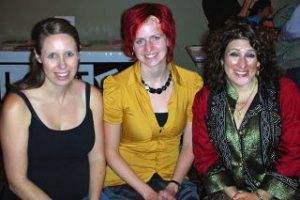
Long periods of this can leave me feeling exhausted, and I’m increasingly aware of the importance of being fully present (or as much as one can be) while parenting.
I suppose like anyone, I’m still trying things out to see what might work at different periods in my life, so it’s likely that ten years from now, I’ll have a whole new set of challenges to work with (and hopefully a whole new bag of tricks to draw upon!).
The Rollercoaster of Agent Hunting is Crazy-Making
I’ve always found it relatively easy to let rejection of individual pieces roll off my back. For short pieces (individual poems or single short stories), I’ve always been a “give it an quick look and send it off to another journal” type of writer.
But when I started working on book-length projects, rejection felt much harder to shake off. Perhaps it was the sheer amount of time one puts into a book-length piece as opposed to a short story or a poem.
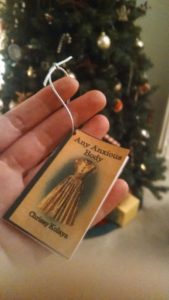
I also found the rollercoaster of agent hunting and later having the book sent around to publishers to be incredibly crazy making. It can be a frustratingly stop-and-start process.
Thankfully, I found my way to an incredible agent, Eleanor Jackson, who believes in my work and has been great about helping me learn how best to manage the stop-and-start, rollercoaster-y nature of the publishing industry.
And I’ve been lucky to have my books picked up by two publishers (Dzanc Books and Broadstone Books) who’ve been fantastic to work with in this regard.
Leaning Heavily on Writing Friends
This was a learning process for me, and in many ways, it still is. I lean heavily on writer friends who’ve been through some of the ups and downs that come with making a career as a writer.
I’m fortunate, too, to have an incredibly supportive partner and non-writer friends and family who seem, somehow, to have a bottomless supply of patience in listening to me talk through these challenges and who kindly give me endless “keep your chin up” reminders along the way.
Novels That Live Under the Bed
I think [the darkest moment] was realizing that the first novel I wrote was perhaps more of a learning experience than something that belonged out in the world, at least in its current state.
I was fortunate at the time to be part of a great program at the Loft Literary Center called the Loft Mentor Series, where I had a chance to spend a year working with some incredible writers who were also really committed to and skilled at mentoring emerging writers—Heid Erdrich, Peter Ho Davies, Sandra Benitez, Elmaz Abinader, Barrie Jean Borich, Rafael Campo.
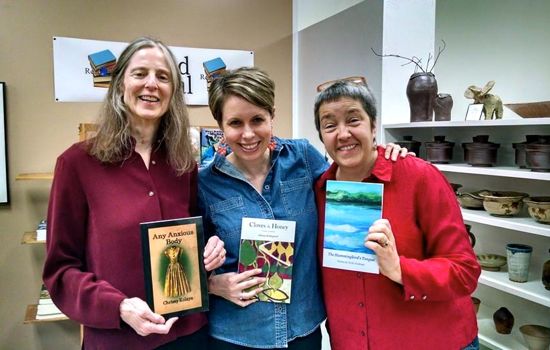
It was such a relief to hear from these mentors and other writers I crossed paths with that nearly all of them had entire book-length projects that now lived “under the bed,” so to speak—that is, that after a number of rejections along the way, they’d decided to put that project aside and begin work on something new.
While it was difficult and heartbreaking to come to that decision about my first novel, it was also liberating to hear that it was okay to do so and to give myself permission to move on and write Charmed Particles.
That first novel is still there, metaphorically “under the bed,” and now and then I wonder if it’s something I’ll one day come back to. But for now, I mainly think of it as a difficult but necessary learning process for me.
I guess I just can’t imagine not doing this. I feel squirrely and not myself when I’m not writing.
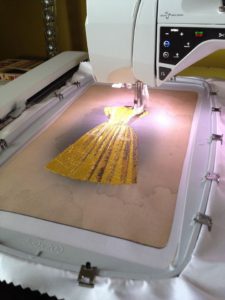
And perhaps the fact that I tend to be stubborn and contrarian is part of it—I was one of those students who loved hearing from a professor: “No one’s ever gotten an A in the class.” It was like someone had just given me a shot of adrenaline and I was immediately determined that I would be the student who did.
I think that peculiar way I happen to be wired has helped me weather some of the challenges of the writing world.
Advice for a Young Writer: Keep At It
If this is who you are, something you need to do, then keep at it.
The writers I know who’ve been successful haven’t necessarily been those who initially seemed the most talented, but they’re the folks who kept working—kept trying to improve, kept trying to learn from their mistakes.
So keep at it, but also keep learning.
* * *
Chrissy Kolaya is a fiction writer and poet, author of Charmed Particles: a novel and Any Anxious Body: poems. Her work appears in the anthologies New Sudden Fiction, Fiction on a Stick, and Stone, River, Sky, as well as in a number of literary journals. She teaches writing in rural western Minnesota where she’s one of the co-founders of the Prairie Gate Literary Festival.
For more information on Chrissy and her writing, please see her website, or connect with her on Goodreads or Twitter.
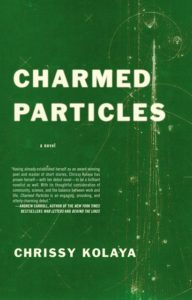 Charmed Particles: Rural Nicolet, Illinois, is a city anchored between two opposing forces, a living history museum devoted to the American frontier and a laboratory for experiments in high-energy particle physics. When the proposal to build the Superconducting Super Collider under the town sparks debate between the scientists and the locals, two families find themselves on opposite sides of controversy that fractures the community, exposing deep cultural rifts between longtime friends.
Charmed Particles: Rural Nicolet, Illinois, is a city anchored between two opposing forces, a living history museum devoted to the American frontier and a laboratory for experiments in high-energy particle physics. When the proposal to build the Superconducting Super Collider under the town sparks debate between the scientists and the locals, two families find themselves on opposite sides of controversy that fractures the community, exposing deep cultural rifts between longtime friends.
Abhijat, a scientist from India now working at the National Accelerator Research Laboratory, has a sole obsession: making a name for himself as one of the great theoretical physicists. The search for answers to the universe’s first questions blinds him to the burgeoning distance between him and his wife, Sarala, who devotes herself to their daughter Meena and assimilating into suburban America.
Across town, Rose Winchester strives to raise precocious Lily, stitching together an unconventional marriage from the brief visits and vibrant letters of her husband Randolph, who fancies himself the last great gentleman explorer. With incisive prose and infinite humanity, Charmed Particles traces the collision of past and progress, science and tradition, and the unimagined elements that may arise in the aftermath. Available at IndieBound, Amazon, and Barnes & Noble.
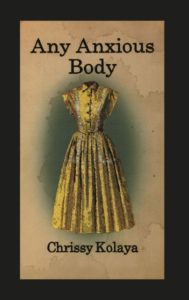 Any Anxious Body: In her debut collection, Kolaya practices poetry as a documentary form, with the lives of working-class women as her primary subject matter, and the dark side of upward mobility as her subtext.
Any Anxious Body: In her debut collection, Kolaya practices poetry as a documentary form, with the lives of working-class women as her primary subject matter, and the dark side of upward mobility as her subtext.
Blending family narratives with incisive verse, the result is at once clear-eyed and sympathetic in its treatment of the human condition.
Available at Broadstone Books and Amazon.


Thanks, Chrissy! I have the same problem with multitasking. It works well with really mindless chores like dishes and laundry, but less well when I’m trying to spend time with someone and do something else at the same time. People and multitasking don’t mix for me!